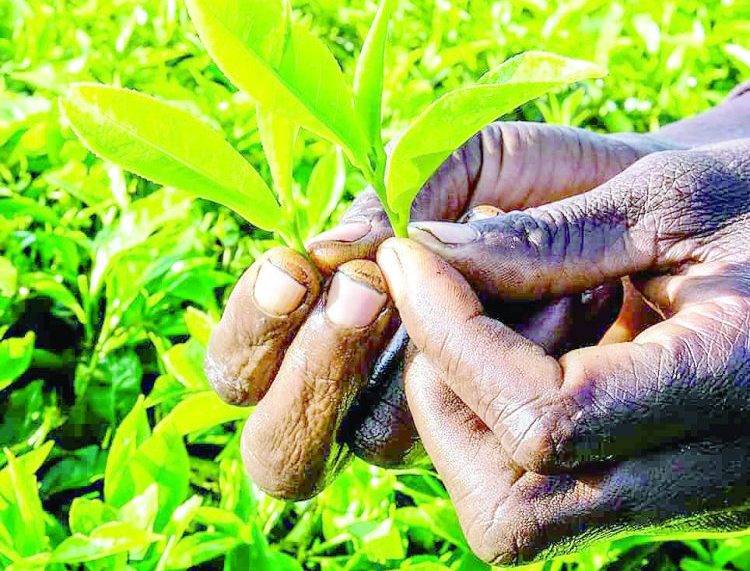KTDA faults mini factories for increased tea hawking
By Mathew.Ndungu and Oliver Musembi, July 5, 2023Kenya Tea Development Agency (KTDA) has raised the red flag over increase in unregulated and unregistered small-scale factories, which they blame for illegal hawking of tea leaves in various parts of Mt Kenya region.
National chairman David Ichoho regretted that the existing gaps regarding licensing of small-scale factories had contributed to thriving tea hawking affecting operations of most of its affiliated factories.
He expressed fears that farmers stand to lose their earnings to the rogue private companies to which they sell the produce for instant pay. While calling out Kenya Tea Board for doing less to regulate the unlicensed factories, Ichoho noted that the unlicensed companies have been exploiting farmers by buying their crop at throw-away prices in the farms.
This, he said, has resulted in illegal plucking of tea leaves which the unsuspecting farmers have been selling at Sh25 per kilogramme contrary to over Sh50 per kilogramme that a farmer who sells his produce to KTDA receives.
The KTDA boss noted that existence of the unlicensed factories is against the existing laws including those of Agriculture and Food Authority (AFA) tea regulations that limits licensing of factories to an individual or farmers who have at least 50 hectares under tea.
According to section 19 of the Crops Act 2013, a factory should not buy green leaf from any person other than the growers appearing in its register. Section 14 of the same Act blocks farmers from selling their tea to any party other than the factory they are registered in.
Speaking during the signing of a renewed contract between five tea factory companies from Nyeri County and KTDA in Ruiru, Kiambu County, the farmers’ representative divulged that the brokers were on a mission to destabilise the sector by reducing factories production.
“Our concern is that farmers are losing their hard-earned cash to these tea hawkers and brokers. They are giving away their green tea for Sh25 per kilogramme which should earn them over Sh50 when we pay the bonus,” Ichoho said.
“We are asking Tea Board of Kenya to intervene and ensure that some of these companies playing against the rules have their licenses revoked,” he added.
Ichoho warned that KTDA may discontinue its services to registered farmers who have been selling their produce to illegal marketers.
His sentiments were echoed by Patrick Ngunjiri, the Company Secretary for several factories from Nyeri and Michael Ngatia, a KTDA board member who urged Tea Board of Kenya to ensure that the Tea Act is followed to the letter.
“It is illegal for a grower to sell the tea to another person where they are not registered. We are calling upon Tea Board of Kenya and the government to move fast and implement the Tea Act and particularly safeguard farmers from hawkers,” he said.
According to KTDA officials, most counties affected by the illegal hawking of green leaves are Kirinyaga, Embu and Meru where hundreds of kilogrammes have been diverted to other processors.
At the same time, Ichoho said tea farmers are likely to be hit by effects of the Finance Act which is likely to raise the cost of tea production, but added that his team is consulting with the government on ways of minimizing the effect.
“We have tried to invest in systems that reduce the cost of production such as small hydro powers which are producing substantial power. We are however asking the government to allow us to onload our power to the national grid then channel the same power to our factories at a lower cost,” he said. Further, the Chairman said international factors such as the civil strife in Pakistan and Sudan which are main consumers of Kenyan tea, as well as scarcity and high cost of the dollar are posing a huge challenge in marketing.
By signing new agreements, farmers okayed KTDA to continue managing their affairs for the next five years.
The agreements between KTDA-MS and factories are part of the ongoing reforms in the tea sub-sector as contained in the Tea Act 2020 which call for enhanced management agreements for factories in favour of smallholder tea farmers.
The reviewed management agreements are a shift from the current arrangement and are expected to remedy the relationship between the parties and improve the management of tea factories for the benefit of tea farmers once implemented.
Among the key changes in the reviewed management agreements is a reduction of the management fees factories pay management agents from the current 2.5 per cent to 1.5 per cent of the net sales value of the tea sold per year.
